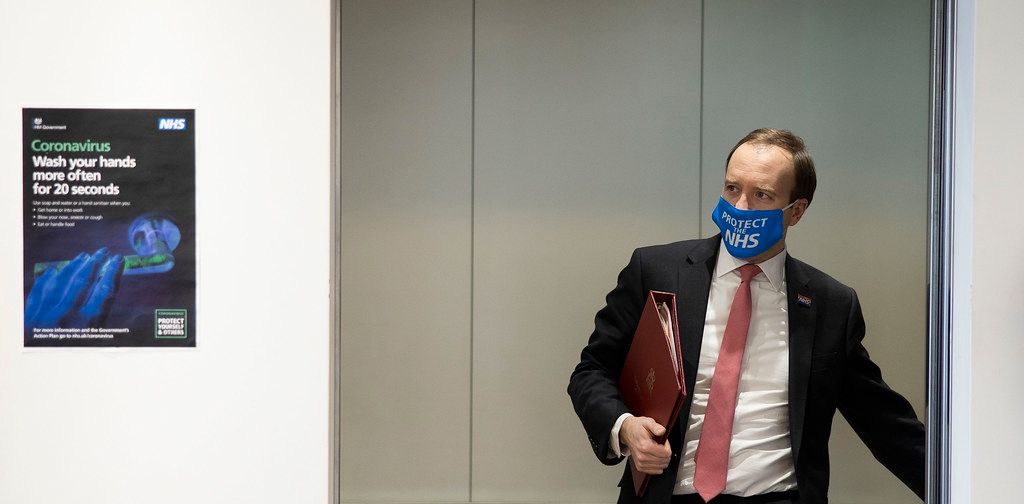
A High Court judge has ruled this week (19 February 2021) that Matt Hancock’s failure to publish details of contracts related to the COVID-19 pandemic response within 30 days was unlawful, breaching the “vital function” of transparency over how billions of taxpayers’ money was spent.
The case was brought forward by the Good Law Project, an organisation that is in the process of many legal challenges against the government’s procurement of services during the pandemic, including PPE contracts.
By the beginning of October, Hancock’s Department of Health and Social Care had spent approximately £15 billion on PPE contracts, however the details of only £2.68 billion worth of contracts had actually been published according to research by Tussell, a procurement consultancy.
Contracts worth more than £10,000 have to be sent for publication within 30 days according to government regulations. The Department of Health and Social Care claimed that it had no intention of delaying publication of PPE contracts, however, emails detail that this was encouraged by Number 10, who asked civil servants for further delay in publication to keep the media, and thus public opinion, on their side.
One of the three PPE contracts the Good Law Project used in their case was a £252m contract for a supply of face masks with Ayanda Capital, a private equity firm. A former adviser on Liz Truss’ Board of Trade is a senior board adviser to the firm, highlighting just another case in the long list of examples of Tory corruption.
Earlier this week it was revealed how Dominic Cummings, the prime minister’s former chief adviser, awarded a contract to Public First, a research company owned and run by two of his long-term associates. Civil servants raised concerns about how Public First were spinning the narrative coming out of focus groups, which were investigating the public’s understanding of COVID and the government’s messaging around the pandemic. It’s not far reached to suggest that the data published was pro-Tory considering that one of the partners, Rachel Wolf, co-wrote the Conservative party’s general election manifesto in 2019.
Hancock has also been asked by the Good Law Project to reveal the list of companies whose offers for PPE contracts were processed through a high-priority route, which was given by referrals by MPs and others with political connections. The government has refused. For those on this VIP lane, the chances of a successful offer were one in ten compared to one in a hundred for other suppliers. This demonstrates how millions of firms, often with more expertise in supplying PPE, have been pushed aside for firms with no experience to sweep up PPE contracts due to the close partnership between big business and government.
It has never been clearer, especially during a pandemic, that the needs of finance capital are above all else under state monopoly capitalism. The pandemic has merely been a new profit-making scheme to the capitalist class with confectionary companies venturing into making gowns, for example. However, this has proven controversial for the Conservative Party, with 59% of voters thinking the government’s high priority lane for friends and associates is corrupt.
The only way the government saw out of this was to deny the allegations made against them despite overwhelming evidence, and even suggested that the Good Law Project had no standing to bring this case. They claimed only the small firms, who the Tories could intimidate into dropping the case by threatening future reprisals, could challenge them. The Tories, and the Labour party, will never tackle the issue of corruption as long as they stand, and will continue to deny corruption even exists in British politics.
As Lenin said, “The dictatorship of the proletariat alone can emancipate humanity from the oppression of capital, from the lies, falsehood and hypocrisy of bourgeois democracy – democracy for the rich – and establish democracy for the poor, that is, make the blessings of democracy really accessible to the workers.” Tory corruption isn’t a mistake but the true character of capitalism, therefore the only way to stop this corruption is to kill it at the roots.
Georgina Andrews



